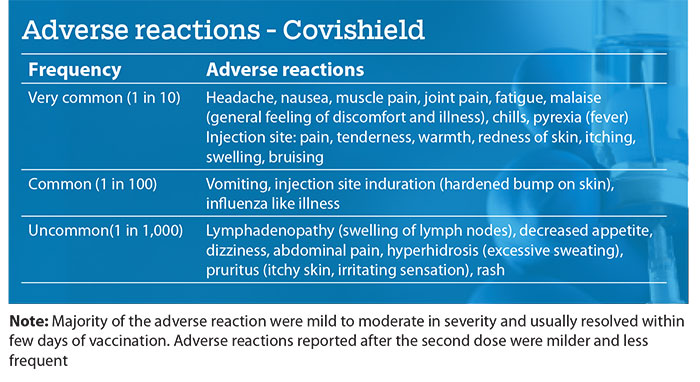
Younten Tshedup
Despite the recent reports on issues with Oxford-AstraZeneca vaccine that have stirred the public, the World Health Organisation (WHO) maintains that it is safe and there is no reason to stop vaccination.
Many Bhutanese took to social media suggesting the government wait before rolling out the mass vaccination campaign, tentatively scheduled this month.
The vaccine that Bhutan intends to roll out to the masses is the Oxford-AstraZeneca vaccine, developed by India’s Serum Institute under the name Covishield through a technology transfer mechanism.
Royal Centre for Disease Control’s head (RCDC) Dr Sonam Wangchuk, said that, because it was a pandemic situation, every country in the world was planning to roll out the vaccines — approved by the WHO — to achieve herd immunity, and to get things ‘back on track’.
He said that given Bhutan’s size, it was easier for the country to achieve the desired herd immunity through mass vaccination. After vaccination, he said that it would give the government certain assurance to allow economic activities, which have been severely affected for now.
“Although the situation, for now, is under control here, the long and porous border constantly worries us,” he said. “There’s always this fear of another lockdown if a breach happens through these porous borders. With the vaccination, this fear of lockdown goes away, because then we know the public have a certain level of protection against the virus.”
Dr Sonam Wangchuk said that, while the preventive measures have been working well for the country, the containment measures and surveillance put in place were expensive.
Today, more than 2,000 Covid-19 tests are conducted daily as part of the health ministry’s surveillance programme. Each Covid-19 test costs the government almost USD 10 or Nu 750. The government also bears the entire quarantine expenses for those incoming travellers and people moving from high-risk to low-risk areas.
Certain relaxations in these protocols are expected following the vaccination.
The side effects
Several countries in Europe and Thailand have suspended the rollout of AstraZeneca vaccine over blood clot fears. However, the alleged side effects, for now, have not been linked to the vaccine.
Dr Sonam Wangchuk, who is also a member of the health ministry’s national immunisation technical advisory group (NI-TAG), said that any vaccine currently in use came with certain adverse reactions, which were normally mild to moderate in severity and usually resolved within a few days of vaccination.
The commonly reported side effects with the AstraZeneca (Covishield) vaccine, he said, included injection site tenderness or pain, fever, headache, fatigue, nausea, and chills, among others. However, he said that the symptoms would not appear in combination and some individuals might experience only one or two of the symptoms.
He added, “These reactions also mean that your body is responding to the vaccine and usually are observed among young adults, who have good immune response system.”
He said that any adverse reaction after the vaccination should be immediate, which is why every individual, who receives the jab would be mandatorily observed for 30 minutes. “It’s important to note that the side effects won’t last for days and definitely it wouldn’t be very severe.”
However, considering the worst-case scenario, Dr Sonam Wangchuk said that, for at least two weeks after the vaccination, all health units and hospitals would remain alert to handle any complications.
For this, he said that health personnel have been trained on all possible side effects and an inventory of medical supplies has been put in place across the country.
Meanwhile, the ministry is still unsure of when the additional doses of vaccine will arrive in the country and the subsequent rollout begin.
Senior programme officer with the public health department, Sangay Phuntsho, said that people should continue to register for the vaccination through the online portal available on the health ministry’s website and Facebook page.
He said that, as the priority was to vaccinate the entire eligible population, those who miss out on the online registration would be facilitated on the day of the vaccination. Also, those who have not considered taking the jab, for now, happen to have a change of mind later, would also be facilitated.

